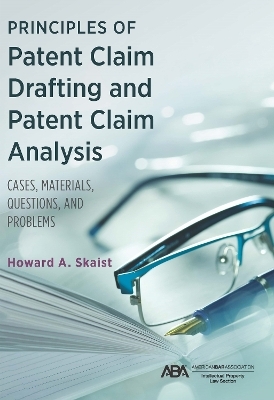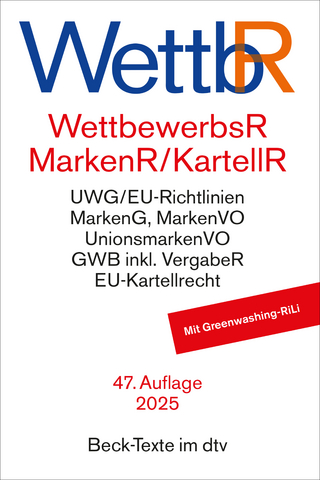
Principles of Patent Claim Drafting and Patent Claim Analysis
American Bar Association (Verlag)
978-1-63905-528-9 (ISBN)
- Noch nicht erschienen (ca. Juni 2025)
- Versandkostenfrei
- Auch auf Rechnung
- Artikel merken
Examples of important topics that the casebook covers, through the relevant statutes, regulations, caselaw and other materials, include: principles for selection of patent claim terminology to enhance clarity and scope; how to avoid patent ineligibility; how to handle the risks associated with 112(f) when drafting functional claims; how to avoid patent claim indefiniteness; how to avoid divided infringement; and strategies and tactics to reduce design around potential, strengthen patent infringement detection and maximize potential damages.
The casebook, consequently, covers a host of patent law considerations and doctrines that have the potential to affect the drafting of patent claims. The book highlights key principles using bolded red text in the introduction of the section of the book intended to teach that principle.
Howard graduated Summa Cum Laude, Phi Beta Kappa, and Tau Beta Pi from Princeton University (Princeton, NJ) in 1982 with a B.S.E.E. Degree in Electric Engineering and Computer Science. He entered Duke University (Durham, NC) in 1984, simultaneously pursuing a Master’s Degree in Business Administration at the Fuqua School of Business and a Juris Doctorate Degree at Duke Law School. While at Duke, he served on the Editorial Board of the Duke Law Journal. He graduated with highest honors, Order of the Coif honors, and won the Willis Smith Award for being first in his law school class. Immediately after graduating from Duke, he began clerking for Judge Eugene Wright on the Ninth Circuit Court of Appeals in Seattle, WA. A year later, he entered private practice as a member of the Oregon bar, joining Stoel, Rives, a Pacific Northwest law firm headquartered in Portland. After spending two years in the Patent Group at Stoel, Mr. Skaist became an in-house patent attorney for General Electric Co. at its Corporate Research and Development Center outside Albany, New York. Eventually, he joined AT&T’s Bell Laboratories as an intellectual property attorney, prior to the formation of Lucent Technologies. He returned to the Pacific Northwest in 1996 rose to become Intel’s Director of Patents. In 2003, Mr. Skaist left Intel and founded Berkeley Law & Technology Group, (BLTG). Currently, BLTG has a total of twelve patent lawyers. BLTG handles all aspects of patent law practice, including: patent preparation and prosecution, patent strategy, portfolio building, and portfolio management, patent assertion and other patent license negotiation support, preparing patent opinion letters, and strategic oversight of patent litigation. Mr. Skaist was also an adjunct professor at the Berkeley School of Law (formerly, Boalt Hall) in Berkeley, CA, and at Willamette School of Law in Salem, OR, and has also taught patent law, copyright law, and computer law at Lewis and Clark Law School and Albany Law School. In addition, he is a member of the AIPLA and served for several years (1998-2001) on the Editorial Board of the AIPLA Quarterly Journal.
| Erscheint lt. Verlag | 17.6.2025 |
|---|---|
| Verlagsort | Chicago, IL |
| Sprache | englisch |
| Themenwelt | Recht / Steuern ► EU / Internationales Recht |
| Recht / Steuern ► Wirtschaftsrecht ► Urheberrecht | |
| ISBN-10 | 1-63905-528-2 / 1639055282 |
| ISBN-13 | 978-1-63905-528-9 / 9781639055289 |
| Zustand | Neuware |
| Haben Sie eine Frage zum Produkt? |
aus dem Bereich


